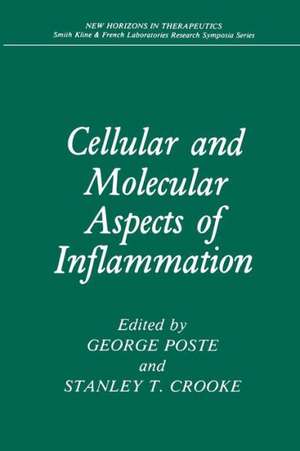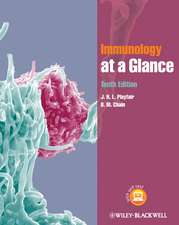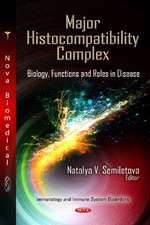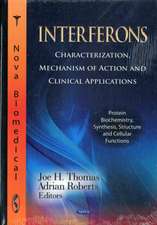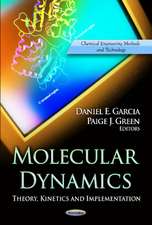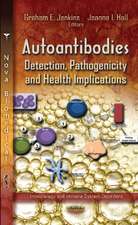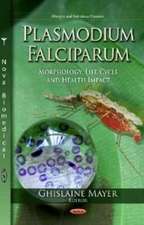Cellular and Molecular Aspects of Inflammation: New Horizons in Therapeutics
Editat de George Poste, Stanley T. Crookeen Limba Engleză Paperback – 26 mar 2012
Preț: 725.59 lei
Preț vechi: 763.78 lei
-5% Nou
Puncte Express: 1088
Preț estimativ în valută:
138.84€ • 145.33$ • 115.56£
138.84€ • 145.33$ • 115.56£
Carte tipărită la comandă
Livrare economică 31 martie-14 aprilie
Preluare comenzi: 021 569.72.76
Specificații
ISBN-13: 9781468454895
ISBN-10: 1468454897
Pagini: 500
Ilustrații: XXVI, 496 p. 38 illus.
Dimensiuni: 152 x 229 x 26 mm
Greutate: 0.66 kg
Ediția:Softcover reprint of the original 1st ed. 1988
Editura: Springer Us
Colecția Springer
Seria New Horizons in Therapeutics
Locul publicării:New York, NY, United States
ISBN-10: 1468454897
Pagini: 500
Ilustrații: XXVI, 496 p. 38 illus.
Dimensiuni: 152 x 229 x 26 mm
Greutate: 0.66 kg
Ediția:Softcover reprint of the original 1st ed. 1988
Editura: Springer Us
Colecția Springer
Seria New Horizons in Therapeutics
Locul publicării:New York, NY, United States
Public țintă
ResearchCuprins
I. Cellular Interactions in Inflammatory Processes.- 1 Cellular Interactions Regulating Inflammation: Activation of T Lymphocytes at Inflammatory Sites and Their Role in Perpetuating Chronic Inflammation.- 2 Triggering and Activation of Human Neutrophils: Two Aspects of the Response to Transmembrane Signals.- 3 Neutrophil Emigration: Quantitation, Kinetics, and the Role of Mediators.- 4 The Role of Endothelium in Chronic Inflammation.- II. Peptide Mediators of Inflammation.- 5 Peptide Mediators of Inflammation: An Overview.- 6 Interleukin-1: Biology and Molecular Biology.- 7 Structure—Function Relations for the Interleukin-2 Receptor.- 8 Cachectin (Tumor Necrosis Factor): A Macrophage Protein that Induces a Catabolic State and Septic Shock in Infected Animals.- III. Biosynthesis and Release of Lipid Mediators of Inflammation.- 9 Arachidonic Acid Metabolism in Tissue Injury.- 10 Lipoxygenase Metabolites: Chemistry and Biochemistry.- IV. Molecular Intermediates in Signal Transductions.- 11 Guanine Nucleotide Regulatory Proteins in Inflammatory and Immune Responses.- 12 Regulation of Phosphoinositide Breakdown.- 13 Regulation of Protein Kinase C by Sphingosine/Lysosphingolipids.- 14 Regulation of Inositol Trisphosphate Formation and Action.- V. Receptors and Signal Transduction Processes Involved in Inflammation.- 15 Molecular Properties of Leukocyte Receptors for Leukotrienes.- 16 LTD4 Receptors and Signal Transduction Processes.- 17 Characterization of Thromboxane A2/Prostaglandin H2 Receptors.- 18 Chemoattractant Receptors and Signal Transduction Processes.- 19 The Molecular Biology of the Human Interleukin-2 Receptor.- VI. The Role of Phospholipases in Inflammation.- 20 Some Novel Phospholipase C Activities: Actions on Phosphatidylcholine and onPhosphatidylinositol—Glycans as Anchors for Membrane Proteins and as Precursors for Possible Insulin Mediators.- 21 Enzymatic Mechanisms and Inhibition of Phospholipase A2: From Manoalide to the Lipocortins.- 22 Molecular Mechanism of Regulation of Cellular Phospholipases.- 23 The Metabolism of Inositol Phosphates.
